Does anyone want a framework/class which allows me to clone by values .Net objects? I'm only interested with public read/write properties (namely DataContracts), and I don't care if references are resolved correctly (i.e. collecions which contains the same instance of item twice).
I tried serialization trick via DataContractSerializer (serialize to XML and back), wrote reflection-based cloning class (sometimes faster/sometimes slower), and was wondering if someone wrote a helper class which can do this via Emit and not reflection. As for now emitting IL is a little to much for my little brain, but I guess this would be the ultimate solution. Unless someone knows an alternative method which is faster than DataContractSerializer.
